Understanding Why Your HVAC Smells Bad When Turned On
When you turn on your HVAC system, the last thing you want to encounter is an unpleasant smell wafting through your home. If you’ve noticed weird odors coming from your HVAC unit, it’s essential to understand what may be causing the issue. This understanding not only helps to pinpoint specific problems but also aids in taking necessary action for a solution. Here’s a closer look at common reasons why your HVAC emits bad smells when turned on.
Possible Causes of Bad Smells from Your HVAC
There are several reasons your HVAC system might produce foul odors. Here are some of the most common ones:
- Dirty Filters: A clogged or dirty air filter may lead to a musty or stale odor. When filters are not changed regularly, they become homes for dust, mold, and bacteria.
- Mold and Mildew Growth: If there is excess moisture in your HVAC system, it can create the perfect breeding ground for mold and mildew, resulting in a pungent smell.
- Burning Dust: Often, a burning smell is due to dust accumulation on the heating elements. When the unit is turned on, the dust burns off, leading to an unpleasant odor.
- Electrical Issues: A burnt wire or an electrical component might produce a smell similar to burnt plastic or rubber. This is a serious matter and should be checked immediately by a professional.
- Refrigerant Leaks: A sweet or chemical smell could indicate a refrigerant leak, which can be hazardous to your health. In such cases, it’s best to call an HVAC expert right away.
Identifying the Source of the Smell
To effectively address the odor issue, you need to identify the source. Here’s how to investigate:
- Start by checking and replacing your air filters. If they’re dirty, replacing them can significantly improve air quality.
- Inspect visible ductwork and vents for signs of mold growth. Use a flashlight to get a better view, and be on the lookout for discoloration.
- If you suspect electrical problems, turn off the power to your HVAC system immediately and contact an HVAC technician.
- Look for any unusual noises that may accompany the smell. This can help diagnose whether the odor is coming from electrical components or other issues.
Preventive Measures to Avoid Bad Odors
There are steps you can take to minimize the chances of experiencing bad smells from your HVAC:
- Regular Maintenance: Schedule annual HVAC maintenance to ensure the entire system is inspected and cleaned. This can help prevent many issues before they arise.
- Change Filters: Change your air filters every 1-3 months, depending on usage and environmental conditions.
- Humidity Control: Use a dehumidifier in areas that tend to have excess moisture, as this will reduce the chances of mold developing in your HVAC system.
- Clean Ducts: Consider scheduling duct cleaning every few years to reduce the accumulation of dust and allergens.
When to Call a Professional
While some smells may be remedied with DIY methods, others require professional expertise. You should contact an HVAC technician if:
- The odor persists even after changing the filters and cleaning.
- You notice a burning smell that doesn’t dissipate.
- A sweet or chemical odor indicates possible refrigerant leaks.
It’s essential for your health and safety to take these smells seriously. A professional can diagnose and eliminate the source of bad odors effectively.
Understanding why your HVAC smells bad when turned on can help you take the right steps to eliminate the issue. Regular maintenance and quick action on detected odors will go a long way in ensuring your home’s air quality remains clean and fresh. For more information on HVAC maintenance and troubleshooting, visit HVAC.com and Consumer Reports.
Common Causes of Unpleasant HVAC Odors
When you turn on your HVAC system and are greeted by unpleasant odors, it can be both alarming and uncomfortable. Understanding the common causes of these odors is essential for correcting the issue and ensuring your home remains a healthy environment. Here are some frequent sources of bad smells coming from your HVAC system.
Dirty or Clogged Air Filters
One of the most common causes of unpleasant smells in HVAC systems is a dirty or clogged air filter. When the filter is not changed regularly, it collects dust, allergens, and debris. When air passes through this filter, it can create a musty or smoky odor.
To prevent this, make it a habit to check your HVAC filters every month and replace them as needed. Generally, a filter should be changed every 1-3 months.
Moisture Issues
Humidity can lead to moisture accumulation inside your system, especially in areas like the air handler or ductwork. Mold and mildew love damp environments, and they can produce a strong, musty smell when they grow. This situation is often exacerbated during the warmer months when humidity levels are higher.
To minimize these odors, keep your HVAC system dry by using dehumidifiers or ensuring proper drainage in your air conditioning system. Regularly cleaning the condensate drain can also help prevent moisture buildup.
Burning Smells
If you notice a burning smell when you turn on your HVAC system, it may indicate that dust is burning off the heating elements or that there are electrical issues within the unit. Dust can build up on coils and other components, creating odors when heated. This burning smell often diminishes after the system runs for a few moments.
However, if the burning smell persists or intensifies, consider contacting a professional to examine the unit, as it could signal a serious issue.
Rodent or Insect Activity
Unpleasant odors coming from your HVAC could also be due to rodent or insect activity. If small animals or insects have entered your ductwork and died, they can leave behind a powerful, foul odor. This situation can pose health risks and lead to additional maintenance costs.
To avoid this, ensure your ductwork is sealed properly and consider using traps strategically placed around your home.
Check Your Ductwork
The ducts themselves can also harbor unpleasant odors. If ducts have accumulated debris or are connected to areas with poor ventilation, unpleasant smells can permeate through your HVAC system. Old, deteriorating ducts can also release a foul smell into your living space.
Periodic inspections and cleanings of your ductwork can help alleviate this problem. You may want to consider **professional duct cleaning** as part of your regular HVAC maintenance.
Oil or Fuel Odors
If your heating system uses fuel oil or gas, you may occasionally notice a strong oil or fuel odor. This might arise from a leak or issue with the heating system’s components. Ignoring this smell can be dangerous, so it’s critical to address it immediately. If you suspect a leak, turn off the system and contact an HVAC technician or utility company promptly.
Chemical Odors
If you catch a whiff of chemical odors when the HVAC system is running, it can suggest a refrigerant leak or problems with electrical components. Refrigerants are designed to be non-toxic, but any leak can lead to unpleasant smells and potential health hazards.
It’s vital to contact a professional to inspect the HVAC unit if you suspect a refrigerant leak or observe unusual smells. They can ensure the system is safe for use.
Bad odors from your HVAC system can detract from your comfort and health. By paying attention to these common causes and scheduling regular maintenance, you can keep your air clean and smelling fresh.
For more information, consider visiting the following resources: HVAC.com and Energy Star.
How to Diagnose and Address HVAC Smells
When it comes to your home’s comfort, your HVAC system plays a vital role. However, if you notice bad smells when you turn it on, it can signal underlying issues that need to be addressed promptly. Diagnosing and addressing HVAC smells is crucial not only for comfort but also for health and safety.
Different odors can arise from your HVAC system, and each odor may indicate a specific issue. Understanding these smells can help you take appropriate action. Here are some common smells and their meanings:
| Smell | Possible Cause | Action Needed |
|---|---|---|
| Musty | Mold or mildew in ductwork | Clean ducts and possibly install a dehumidifier. |
| Burning | Overheating components or burnt wires | Turn off the unit and call a professional immediately. |
| Chemical | Refrigerant leak | Contact an HVAC technician for repairs. |
| Rotten eggs | Gas leak (if using gas for heating) | Evacuate immediately and contact emergency services. |
| Fishy | Electrical issues or wiring problems | Call an electrician or HVAC professional. |
To effectively diagnose these odors, follow these steps:
- Turn Off Your HVAC System: If you notice a strong odor, the first step is to turn off your HVAC system to prevent further complications.
- Check the Air Filter: A dirty air filter can create musty smells and reduce airflow, leading to more significant issues. Replace it if it’s dirty.
- Inspect the Drain Pan: Look for standing water and mold growth, especially in the drain pan. Clear any blockages and clean thoroughly.
- Examine Ducts and Vents: Open your vents and look inside the ducts for mold or debris. Cleaning them may help eliminate musty odors.
- Listen for Unusual Sounds: If you hear strange noises alongside the odor, it may indicate mechanical problems requiring professional assessment.
After diagnosing the problem, addressing the issue quickly is essential to maintain a healthy environment. Here are some potential actions you can take:
- Change Air Filters Regularly: Replace filters every 1-3 months to keep the air clean and prevent smells.
- Maintain Humidity Levels: Use dehumidifiers to minimize moisture, which can lead to mold and mildew growth.
- Clean and Inspect: Schedule regular HVAC maintenance to clean components and inspect for leaks or damage.
- Seal Leaks: If ductwork is leaky or damaged, seal it to improve efficiency and reduce smells.
- Consult Professionals: For persistent issues, consult certified HVAC technicians. They can diagnose problems and ensure safe operation.
Additionally, education about the functionality of your HVAC system can aid in recognizing potential problems early. Familiarize yourself with its components and regular maintenance schedules. This knowledge can save you from more significant headaches and expenses down the line.
For further reading on maintaining your HVAC system, you can check resources such as Energy.gov and HVAC.com.
Being proactive with your HVAC maintenance will ensure improved air quality and comfort in your home. Monitoring for unusual odors when the system is running can save you from costly repairs and health hazards in the future.
The Importance of Regular HVAC Maintenance
Maintaining your HVAC system is essential for ensuring a comfortable living environment throughout the year. A well-functioning HVAC system not only helps regulate temperature but also improves air quality and saves energy. Neglecting regular maintenance can lead to several problems, including inefficient operation, costly repairs, and potential health hazards.
Benefits of Regular HVAC Maintenance
- Improves Efficiency: A well-maintained HVAC system operates more efficiently. Regular checks ensure that components are clean and function properly, which reduces energy consumption.
- Increases Lifespan: Routine maintenance can extend the lifespan of your HVAC system. During inspections, professionals can identify and fix minor issues before they develop into major problems, thus prolonging the system’s life.
- Enhances Air Quality: Clean ducts and filters prevent dust, allergens, and other pollutants from circulating in your home. Regular maintenance helps ensure you breathe clean air.
- Saves Money: Preventive maintenance can save you money in the long run by minimizing energy bills and avoiding expensive repairs. A small investment in maintenance goes a long way.
- Provides Peace of Mind: Knowing that your HVAC system is running smoothly gives you peace of mind. You can rely on it to keep your home comfortable in extreme weather conditions.
Common HVAC Maintenance Tasks
Regular HVAC maintenance involves a series of tasks that are generally performed by professionals but can also be done by homeowners. Each activity plays a part in ensuring optimal system performance:
| Maintenance Task | Frequency | Description |
|---|---|---|
| Filter Replacement | Every 1-3 Months | Replace or clean air filters to ensure optimal air flow and quality. |
| System Inspection | Annually | A professional technician inspects the entire system to identify issues. |
| Coil Cleaning | Annually | Cleaning the evaporator and condenser coils improves efficiency. |
| Thermostat Calibration | Annually | Ensure that the thermostat is reading accurately for better temperature control. |
| Duct Inspection | Every 2-5 Years | Check ducts for leaks or blockages to improve air flow and efficiency. |
Signs Your HVAC Needs Maintenance
It’s essential to stay alert for signs that your HVAC system may need attention. Here are some indicators:
- Unusual Noises: If you hear strange sounds, such as banging or rattling, it might signal an underlying problem.
- Inconsistent Temperatures: If some rooms are hotter or colder than others, your HVAC system may not be functioning properly.
- Increased Energy Bills: A sudden spike in your monthly energy costs can indicate inefficiency, often due to lack of maintenance.
- Bad Odors: Any burning smell or musty odor when the system is running needs immediate professional evaluation.
Choosing a Maintenance Provider
Selecting the right HVAC maintenance provider is crucial. Look for a company that offers comprehensive maintenance plans, is licensed, and comes highly recommended. Reading customer reviews and asking for referrals can also help you make the right choice.
Having regular HVAC maintenance can impact your comfort, health, and overall expenses. It ensures that your heating and cooling systems perform optimally when you need them the most. For professional maintenance services, consider visiting Ackerman Heating or explore options at BC Hydro, which offer resources and guidance for maintaining your HVAC systems effectively.
In the end, the importance of regular HVAC maintenance cannot be overstated. Investing time and resources in keeping your system in top-notch condition guarantees the comfort and health of everyone in your home while saving you money on energy bills in the long run.
When to Call a Professional for HVAC Smell Issues
Your HVAC system plays a crucial role in keeping your indoor environment comfortable. However, if you notice unusual smells when your system is running, it could signal potential issues that need attention. Understanding when to call a professional can save you time and money while ensuring your system operates safely and efficiently.
There are several types of odors that can emanate from your HVAC system, each indicating different problems. Here’s a breakdown of some common smells and when to seek help:
- Musty Smell: A musty or moldy odor often indicates mold growth in your system or ducts. Mold can pose health risks, so it’s essential to have a professional inspect and clean your system immediately. You can learn more about mold-related issues and solutions at EPA – Mold.
- Burning Smell: If you detect a burning smell, turn off the HVAC system immediately and call a professional. This odor could signal overheating components or electrical issues, which can lead to serious hazards. For safety tips and electrical concerns, visit NFPA – Electrical Safety.
- Chemical Odor: A chemical or sweet smell may indicate a refrigerant leak. This is not only a sign of malfunction but can also be harmful to your health. Contact a technician to assess the situation without delay.
- Foul or Rotten Egg Smell: If you smell rotten eggs, it might signify a gas leak. This is a serious issue requiring immediate professional intervention. If you suspect a gas leak, evacuate your home and contact your gas provider right away.
Beyond recognizing specific odors, you should also pay attention to the frequency and duration of these smells:
- If smells occur only when the system first turns on but dissipate quickly, it may not be cause for alarm.
- If the odors linger or worsen, it’s a sign you should call a professional quickly.
Regular maintenance can significantly reduce the risk of unpleasant smells from your HVAC system. Here are some proactive steps to consider:
- Change your air filters regularly.
- Schedule annual HVAC inspections with a certified technician.
- Keep the area around your outdoor unit clean and free of debris.
It’s essential to know when something is beyond a DIY fix. If you ever feel uncertainty about a smell coming from your HVAC, err on the side of caution and reach out to a licensed professional. Waiting too long can lead to bigger problems that require costly repairs or pose safety risks.
Additionally, if you are uncertain of which HVAC service providers are most reliable, consider checking resources like Angie’s List or HomeAdvisor for reviews and recommendations.
| Odor | Possible Cause | Action |
|---|---|---|
| Musty | Mold growth | Call a professional for cleaning |
| Burning | Overheating parts | Turn off system, call for help |
| Chemical/Sweet | Refrigerant leak | Contact technician ASAP |
| Rotten Eggs | Gas leak | Evacuate and call gas provider |
Knowing when to act can help you maintain a comfortable and safe environment at home. If you notice any abnormal smells from your HVAC system, don’t hesitate to contact a professional. Taking immediate action can prevent more significant issues and keep your home safe and pleasant.
Preventative Measures to Keep Your HVAC System Odor-Free
Keeping your HVAC system odor-free is essential for maintaining a comfortable and healthy living environment. Strange smells can be a sign of underlying issues that, if not addressed, may lead to significant problems. Here are some preventative measures you can take to ensure your HVAC system operates smoothly and without unpleasant odors.
Regular Maintenance
One of the most effective ways to prevent odors from your HVAC system is through regular maintenance. Scheduling yearly inspections can help catch small issues before they escalate. During these inspections, a technician will clean filters, check the refrigerant, and examine all components for dirt and wear.
Change Filters Frequently
Dirty filters restrict airflow and can lead to odor issues. Change your HVAC filters at least every 1 to 3 months, especially during peak seasons. Using high-quality HEPA filters can also help trap dust, pet dander, and other particles that contribute to foul smells.
Keep the System Clean
Ensuring that your HVAC system is dust-free is critical. Here are some steps to keep it clean:
- Vacuum the vents and registers monthly to remove dust accumulation.
- Clean the condensate drain line to prevent mold growth.
- Inspect and clean the evaporator and condenser coils to boost performance and odor control.
Monitor Humidity Levels
High humidity can lead to mold and mildew growth, causing musty odors. To keep humidity levels in check, consider investing in a dehumidifier. Aim to maintain indoor humidity between 30% and 50% for optimal comfort and air quality.
Address Moisture Problems
If you notice leaks around your HVAC system, it’s crucial to act quickly. Moist conditions can lead to mold, which produces strong odors. Here’s how to address moisture problems effectively:
- Inspect your ductwork for leaks and seal any gaps.
- Ensure that all condensate drains are functioning correctly and not clogged.
- Address any roof or plumbing leaks promptly.
Seal Ductwork Properly
Leaky ducts can attract dust, insects, and even rodents, leading to odor problems. Sealing your ductwork helps maintain a clean air environment. Consider contacting a professional to assess and seal your ducts properly.
Utilize Air Purifiers
Adding air purifiers to your home can help improve air quality and reduce odors. Look for models equipped with HEPA filters and activated carbon to trap particles and absorb odors. Regularly maintain and replace the filters in your air purifier for best results.
Check for Rodent Infestations
Sometimes, bad smells can come from trapped rodents or other pests in your HVAC system. If you suspect this is the case, consider having a professional inspection. Early detection can prevent severe odor issues and hygiene concerns.
Maintain Outdoor Units
Don’t neglect the outdoor components of your HVAC system, as they can also contribute to odors. Regularly clean the area around your outdoor unit and remove any leaves, debris, or vegetation that could block airflow. Ensure the unit is functioning properly to avoid unpleasant smells due to malfunctioning.
Use Natural Odor Neutralizers
If you already have some odors present, consider using natural odor neutralizers. Essential oils like peppermint or lemon can provide a fresh scent when added to a diffuser. However, these are just masking solutions, and underlying problems should be addressed for lasting results.
Invest in an HVAC Specialist
While DIY maintenance is beneficial, having an HVAC specialist serve your system can provide insights into issues you might overlook. They can recommend tailored solutions and help implement advanced odor prevention measures. For more expert information, visit ASHRAE.
Maintaining an odor-free HVAC system not only enhances your comfort but also extends the overall life of the system. By implementing these preventative measures, you can enjoy a fresher, cleaner indoor environment. For further guidance and services, please explore how to keep your HVAC in top condition through resources like Energy.gov and Angie’s List.
Exploring the Link Between HVAC Smells and Indoor Air Quality
Breathing clean air is essential for your health and wellness, making indoor air quality a vital consideration in any home. One often overlooked aspect of this is how your HVAC system can impact the air you breathe. If you notice unpleasant smells when your HVAC is turned on, understanding these odors can help you address potential indoor air quality issues.
Several factors contribute to smells from your HVAC system. Recognizing these can not only clear the air but also enhance your overall living environment. Here are some common scents you might encounter and their possible implications:
- Dirty Socks or Musty Odor: This smell usually indicates mold or mildew growth in your ductwork or on your air conditioning coils. You should act quickly, as these fungi can severely affect your indoor air quality.
- Burning Plastic or Electrical Smell: If you notice a burning smell, switch off your HVAC immediately and contact a professional. This could signal overheating parts or electrical issues, posing safety risks.
- Gas Smell: A gas scent could mean a gas leak from your furnace. If this happens, evacuate your home and call your gas company without delay.
- Rotten Eggs: A sulfur-like smell is commonly associated with a sewer backup or dead animals in the ducts. This odor can significantly hinder your indoor air quality and necessitates prompt investigation.
- Chemical Smells: Sometimes, a chemical or formaldehyde odor can arise from newly installed components in your HVAC system. It’s advisable to ventilate the area until the smell dissipates.
Regular HVAC maintenance is essential for keeping odors at bay and ensuring good indoor air quality. Here are some strategies to consider:
- Regular Filter Changes: Changing your air filter every one to three months can prevent the buildup of dust, mold, and allergens that contribute to odor and poor air quality.
- Professional Inspections: Schedule annual HVAC check-ups with a reliable technician. They can spot potential issues early and ensure that your system runs smoothly.
- Duct Cleaning: Consider having your ducts cleaned if it’s been a while since they were last serviced. This can help eliminate dust particles and biological contaminants that can produce foul odors.
- Moisture Control: Use dehumidifiers if necessary. Keeping humidity levels in check helps prevent mold growth, significantly improving both smells and overall air quality.
Your HVAC system plays a crucial role in your home’s comfort and air quality. If you notice unpleasant smells emanating when it’s turned on, it’s not just a nuisance. Such odors can indicate larger issues that need to be addressed to promote a healthier indoor environment.
Experiencing smells from your HVAC can also signify that it’s time to upgrade your system. Modern HVAC solutions often come with advanced air filtration and purification systems, enhancing indoor air quality significantly. These improvements can reduce allergies and respiratory issues, allowing your home to be a safe haven.
In your quest for better indoor air quality, remember that you’re not alone. Resources are available to help navigate the various aspects of HVAC maintenance and indoor air quality. Websites such as Energy.gov and EPA.gov offer valuable insights on maintaining your HVAC system and understanding its impact on air quality. Additionally, ASHRAE provides guidelines for indoor air quality standards.
Paying attention to HVAC-related smells is more than just an issue of comfort; it’s about safeguarding your health. Being proactive in addressing these odors can lead you to a cleaner, safer, and more pleasant indoor environment. Always remember, if you smell something odd from your HVAC, investigating it promptly can prevent long-term issues and amplify your indoor air quality.
Key Takeaway:
Understanding the reasons behind unpleasant smells from your HVAC system is crucial for maintaining a comfortable and healthy living environment. Many homeowners may find themselves asking, "Why does my HVAC smell bad when turned on?" This article delves into the common causes of these odors, empowering you with knowledge to diagnose and address the issue effectively.
One of the primary causes of bad smells is the presence of mold or mildew in your HVAC system. This often occurs when moisture builds up in the ducts or on the coils, creating a perfect breeding ground for these harmful organisms. Such odors may indicate potential health risks, making it vital to act promptly. Additionally, a dirty air filter can lead to a musty or stale smell, exacerbating indoor air quality issues. Regularly changing or cleaning air filters can significantly mitigate these unpleasant odors.
Diagnosing HVAC smells involves being attentive to the type of odor you notice. A burning smell could suggest electrical issues, while a sulfur-like odor might indicate a gas leak, requiring immediate professional handling. Recognizing these signs can help you act fast and prevent costly repairs or health hazards.
Regular HVAC maintenance is essential for preventing odors. Scheduled checks can catch issues like mold growth, refrigerant leaks, or debris buildup before they worsen. By keeping your HVAC system clean and functional, you can ensure it operates efficiently without unpleasant smells.
If you find persistent odors that you cannot diagnose, it may be time to call a professional. HVAC technicians possess the expertise to identify and resolve complex issues that an untrained person might miss.
Implementing preventative measures, such as installing dehumidifiers, maintaining clear drainage systems, and regularly cleaning your ducts, can help keep your HVAC system odor-free. A consideration towards the connection between HVAC smells and indoor air quality is crucial, as poor air quality can lead to various health issues, affecting your overall well-being.
Understanding the sources of HVAC odors, combined with proactive maintenance and timely professional assistance, will ensure your system not only smells fresh but also enhances your indoor air quality for a healthier home.
Conclusion
Addressing unpleasant odors from your HVAC system is crucial for maintaining a healthy and comfortable home. Understanding why your HVAC smells bad when turned on will empower you to identify and resolve the issue quickly. Common causes of these odors range from mold and mildew to burnt dust, each requiring a distinct approach for diagnosis and treatment.
Regular maintenance is vital in preventing odors from developing in the first place. By changing air filters, cleaning ducts, and scheduling professional inspections, you can significantly reduce the risk of unpleasant smells. If you notice persistent odors despite taking these preventative measures, it may be time to call in a professional. HVAC experts can identify more complex issues that might be beyond a typical homeowner’s expertise.
Furthermore, the connection between HVAC smells and indoor air quality cannot be ignored. Odors not only signal potential malfunctions but can also indicate underlying issues that affect the air you breathe. Prioritizing a clean and odor-free HVAC system contributes to a healthier living environment.
By staying proactive with maintenance, addressing issues as they arise, and understanding the root causes of unwanted smells, you can maintain a pleasant atmosphere in your home. Ultimately, a well-functioning, odor-free HVAC system enhances not only comfort but also health, making it essential to pay attention to any signs of trouble.
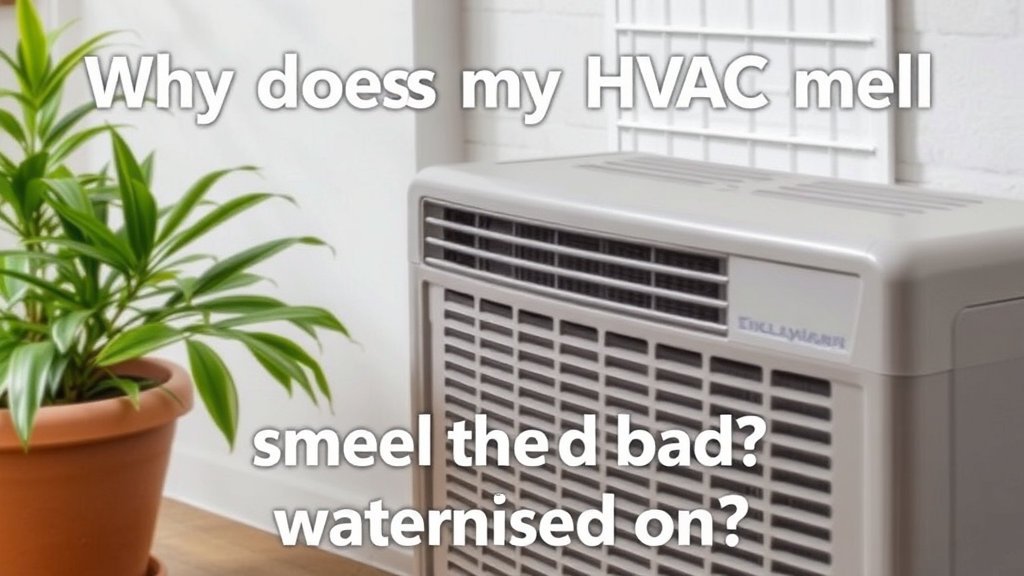
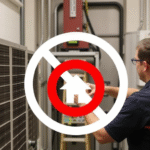
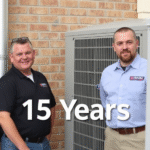
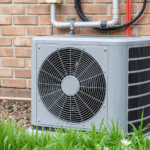
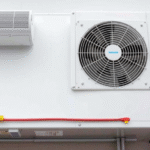
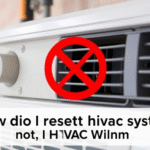
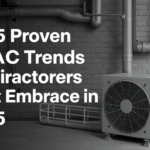
Leave a Reply